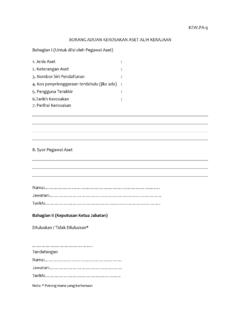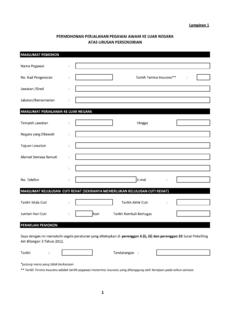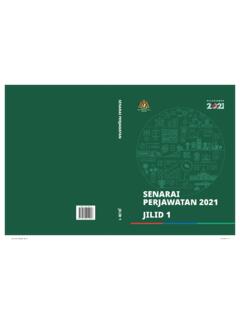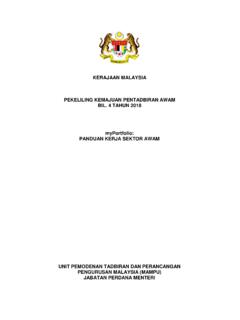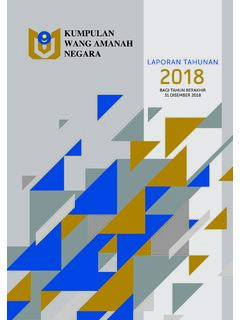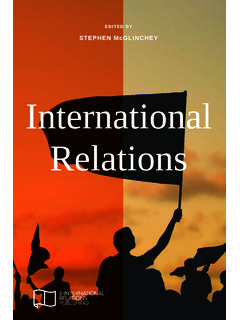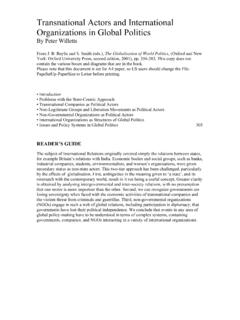Transcription of DIPLOMACY AND FOREIGN RELATIONS Introduction
1 Halisah Ashari Page 1 DIPLOMACY AND FOREIGN RELATIONS Introduction John Hugh Adam Watson, a pre-eminent figure in the study of international RELATIONS , in his book DIPLOMACY : The Dialogue between States (1982), defined DIPLOMACY as a negotiation of political entities which acknowledge each other s independence . He argued that contemporary DIPLOMACY had four primary tasks. These were: information-gathering abroad; the analysis of such information by FOREIGN ministries at home; developing policy based on that information; and, communicating such a policy. National Reputation National reputation is fundamentally an instrument of power. It also signifies a nation s power strength. National reputation is all about having a good name in the world of nations and it reflects and affects the country s standing in the global arena.
2 It refers to collective judgments of a FOREIGN country s image and characters that are then used to predict or explain a nation s culture, policy, conduct, and future behaviour. National reputation, along with military and economic resources, is a pivotal force in international RELATIONS . Quintessentially, national reputation, rooted in international public opinion, signifies the presence or absence of international legitimacy accrued to a certain nation. The opinion of the given nation as expressed by FOREIGN publics is one of the reliable indicators of a nation s reputation in the international sphere. Having the desired image and reputation can often be of greater use than a significant increment of military or economic power. This is because a nation s reputational capital may affect the country s ability to build coalitions and alliances to achieve international political objectives, to influence perceptions and purchase decisions, and to attract FOREIGN investments.
3 Halisah Ashari Page 2 As national reputation matters in international interactions and transactions, managing national reputation and nation-states relationship with stakeholders overseas is an integral part of FOREIGN -policy making and public DIPLOMACY . Managing national reputation is not just about projecting a certain national image but rather it is all about negotiating and building understanding with FOREIGN publics. DIPLOMACY and FOREIGN RELATIONS Cultivating and managing a favourable world opinion toward a nation-state is the mandate of DIPLOMACY . DIPLOMACY generally refers to a government s process of communicating with FOREIGN publics in an attempt to bring about understanding for its nation s ideas and ideals, its institutions and culture, as well as its national goals and current policies.
4 By this accord, nation-states partake in the most pluralistic organizing institution in the international system. One state can confidently enter into diplomatic RELATIONS with another under a shared understanding. With sovereignty mutually recognized, nation-states can use DIPLOMACY as the means to achieving political ends. FOREIGN policy is the content of FOREIGN RELATIONS , comprising the aspirations and aims a country wants to achieve in its RELATIONS with other states and international governmental organizations. A developmental FOREIGN policy is pro-engagement; it is not isolationist. It is fundamentally concerned with addressing domestic, continental, and global disparities and inequalities. Some countries formulate and publish their FOREIGN policy goals.
5 Sometimes a country s FOREIGN policy goals are not published, but kept under wrap for security purposes. DIPLOMACY plays an important part in shaping what happens in international RELATIONS . DIPLOMACY provides the spokes for one state s political interests to interface with those of another without resorting to military force. DIPLOMACY is used to manage the goals of FOREIGN policy focusing on communication. DIPLOMACY attempts to manage the goals of FOREIGN policy mostly by implementing goals but also by preparing FOREIGN policy decisions. Halisah Ashari Page 3 DIPLOMACY is negotiated when the interests of states cannot be fully reconciled, and explicit bargaining is required to reveal the area of agreement. On the other hand, even when the will or opportunity to negotiate is absent, and when it is not explicit, bargaining can converge upon and underscore common interests between states, avoid misunderstandings, highlight the potential for communication between adversaries, and define practical steps to strengthen the harmony of interests.
6 Non-negotiated bargaining is critical for international norms of behaviour. Convergent interests are commonly understood as increasing the potential of interstate cooperation. Convergence is stimulated either by shifts in national interest or by new opportunities to recognize those shifts. Challenges in DIPLOMACY and FOREIGN RELATIONS In international RELATIONS , DIPLOMACY is inevitably driven by changing events, if not exclusively so. The points of contact between states have increased dramatically. International trade, tourism, migration, development assistance, and cultural exchanges have linked countries together. The communications revolution, the impacts of modern technology, the emergence of new non-government influences (business, the professionals, civil society), the new risks (environmental dilapidation, resource scarcity), as well as those intractable afflictions (poverty) magnified by globalization are all set to undermine diplomatic services over the pursuit of RELATIONS and issues between countries.
7 Diplomatic communication, traditionally based on government-to-government and diplomat-to-diplomat interactions, has expanded to include government-to-people contacts. FOREIGN public opinion today is gaining ever more significance in forming an emerging globalized public and influencing international political process and outcome. Issues that used to be considered part of the domestic domain, figure prominently today on the international agenda. Publics, domestic or FOREIGN , do not always have an informed view or coherent opinion on matters related to cross-national and FOREIGN policy issues. Direct and effective linkages between public opinion and policies always do not exist either. However, the role of individuals and their expressed opinions do form a climate of opinion in which decision-makers Halisah Ashari Page 4 pursue policies.
8 Therefore, the perceptions and opinions held by FOREIGN publics regarding a given nation are critically important to decisions by nation-state. The goals of a country s FOREIGN policy are increasingly influenced by domestic and external forces, thus, the objectives of a country s FOREIGN policy undergo frequent changes. With the changing global political and economic landscape, the proliferation of media and communication technologies, the emergence of new actors in global affairs, and most of all, the complex confluence of these facets, the credibility and effectiveness of standard communication practices in DIPLOMACY is under challenge. Managing the information flow in such contexts is the realm of DIPLOMACY , particularly in the new world of globalization and communication.
9 DIPLOMACY today struggles to reflect the diversity and pluralism of the globalized age. It is almost impossible to examine any problem in contemporary international RELATIONS effectively without considering the diplomatic challenges which it poses, the innovations in diplomatic practice which it calls forth, and the contribution which DIPLOMACY can make to easing the problem in such a way as to contribute to a more peaceful, just, and orderly world . Malaysia s DIPLOMACY and FOREIGN Policy Malaysia has long overlooked DIPLOMACY , generally showing little interest in what DIPLOMACY is, in what diplomats do, and most importantly, in what diplomats should do. Malaysia s traditional DIPLOMACY is in some state of disarray when confronted by today s complex globalization.
10 The distribution of power and wealth in the world is shifting and the ways in which we represent ourselves to the world should also undergo change. Interest in DIPLOMACY should be revived. The interest in DIPLOMACY is attributable to the increasing diffused centres of interest and power in international politics and the ever more complex communication dynamics. Historically, Malaysia has always been a proponent of DIPLOMACY in her FOREIGN policy. Prior to independence in 1957, Malaysia has no independent RELATIONS with other countries. She has no rights as an international entity. Upon independence, Malaysia has had a bigger task of raising the profile of the country s international Halisah Ashari Page 5 identity, and that means demonstrating an independent and coherent FOREIGN policy befitting a newly independent state.

